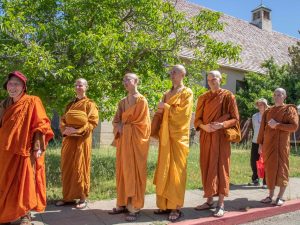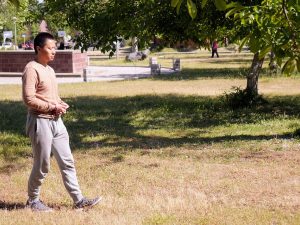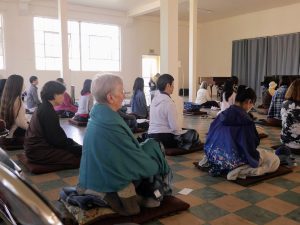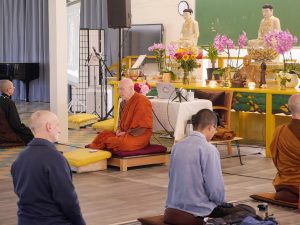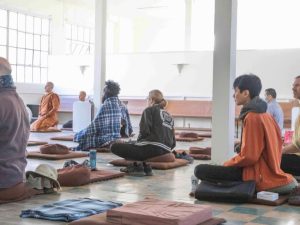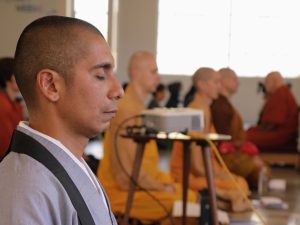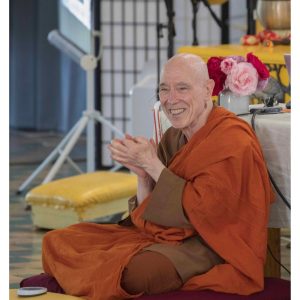
Bhikkhu Bodhi Leads Retreat on The Four Protective Meditations Spring CEI
Sharing by DRBU CEI Committee:
This past spring, we were lucky to have Venerable Bhikkhu Bodhi lead our semesterly Contemplative Exercise Immersion! Each day we learned a new meditation technique from the “The Four Protective Meditations.”
From the wide range of meditation subjects found in the Buddha’s discourses, the ancient teachers of the Theravada tradition have selected four subjects and grouped them into a set known as “the four protective meditations”: recollection of the Buddha, the meditation on loving-kindness, contemplation of the unattractive nature of the body, and mindfulness of death. The four are called “protective meditations” because each offers protection from a particular unwholesome tendency and reinforces a beneficial quality essential to the path. The four can be developed either as a preparation for a more intensive type of meditation or as independent subjects.
Recollection of the Buddha protects against dissatisfaction and generates faith and devotion, which in turn gives rise to joy. Loving-kindness is the antidote to ill will and generates feelings of friendliness and altruistic concern. Contemplating the unattractive nature of the body debilitates sensual lust and inclines the mind toward disenchantment and dispassion. Mindfulness of death is a potent remedy for heedlessness, reminding us of the transience of everything we cherish.
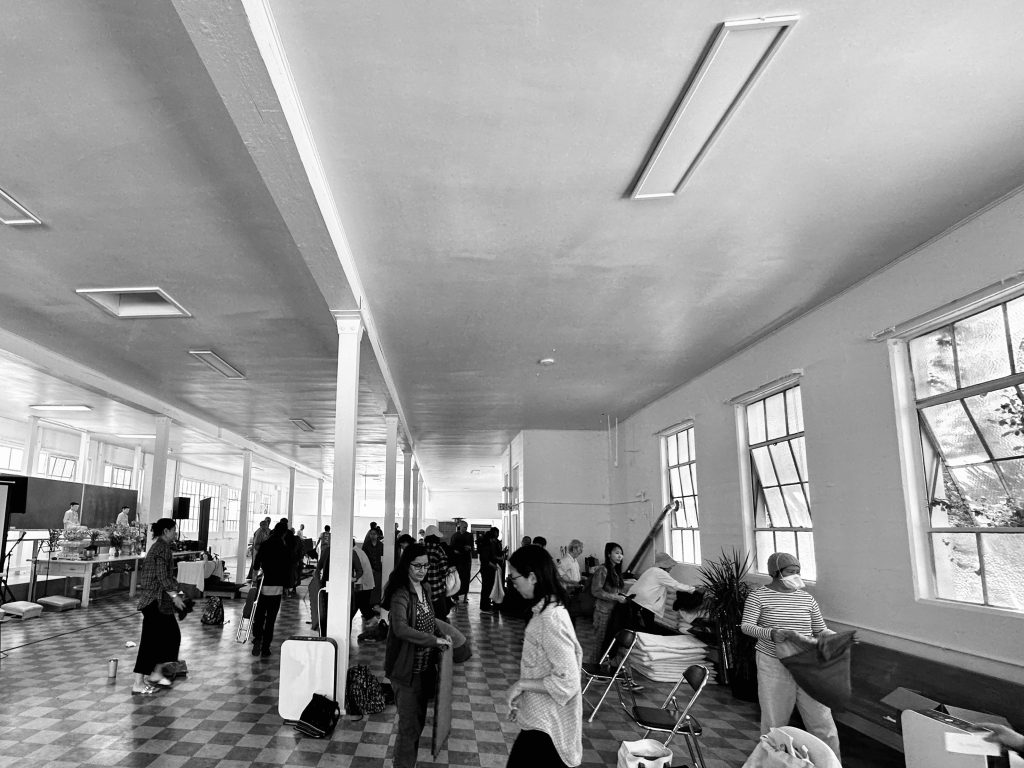
A student’s poem inspired by the CEI experience
Leaving it all behind,
the death of each moment.
Rebirthing timing, clicks on
the deathless of each being.
Laying by the pool of Dharma,
Chilling, we will melt into that light shining. – Vajra BA’23
About Bhikkhu Bodhi:

Ven. Bhikkhu Bodhi is a Buddhist monk of American nationality, born in New York City in 1944. After obtaining a PhD in philosophy from the Claremont Graduate School, he came to Sri Lanka to enter the Sangha. He received the novice ordination in 1972 and the higher ordination in 1973, both under the eminent scholar monk, Ven. Balangoda Ananda Maitreya, with whom he studied Pali and Dhamma.
He is the author of several works on Theravāda Buddhism, including four translations of great Pali-suttas, together with their comments. He was editor and president of the Buddhist Publication Society for many years.
